- Home
- Hilary Mantel
Eight Months on Ghazzah Street: A Novel Page 2
Eight Months on Ghazzah Street: A Novel Read online
Page 2
He did not suggest making the drive to Johannesburg, but waited until Parsons said, “I’ll come to you then, shall I?” He knew how he would employ the time, as he drove to Gaborone to meet Parsons: he pictured himself at the wheel of his truck, the empty road and the low brown hills unwinding before him, while his practiced eye was half alert for cattle and children, and his inner will concentrated, mile after mile, upon making Parsons offer him more money than he had ever dreamed of earning in his life. This, in due course, Parsons did.
The details were fixed up, at the President Hotel this time (there being, in Gaborone, a choice of two) over a tough T-bone steak and a glass of Lion lager. Andrew Shore shook hands with Eric Parsons, the Saudi man; Jeff Pollard, talking, conducted him down from the terrace and out into the street. Across the road, the nation’s only cinema was showing a double bill: a kung fu drama, and Mary Poppins. Andrew stood in the dusty thoroughfare known as the Mall, gazing into the window of the President Hotel’s gift shop: crocodile handbags, skin rugs, complete bushmen kits with arrows and ostrich shells, direct from the small factory in Palapye which had recently started turning them out. “I can hardly believe I’m finished in Africa,” he said.
When he arrived home late that afternoon, Frances was on the porch packing a tea chest, wrapping up their dinner service in pieces of the Mafeking Mail. “Well, did you do it?” she said. She straightened up and kissed his cheek.
“Yes, I did it, it’s all fixed. But we can’t go together—I have to be in the Kingdom before they’ll grant you a visa. When we finish up here I’m to fly to Nairobi, and pick up a businessman’s entry permit—then once I’m in, Turadup will fix it for me to stay. They’re in a hurry.”
“Why? Has someone quit without notice?”
“I didn’t ask.”
“I would have asked.”
“I didn’t think of it.”
“So you won’t even be coming to England first?”
“And stay with your mother?”
“It looks as if I’ll have to.”
“Well listen, Fran, we won’t be apart for long. And by the time you get out to Jeddah, we’ll be fixed up with a house, and everything will be ready for you.”
“I’d rather go with you. But I suppose they have their rules. Oh, look, am I to pack these?” She held out a candlestick, one of a pair from a local pottery, rough, heavy, unglazed.
“Sure,” he said. “Souvenir. Take those funny baskets as well, the ones that fall over.”
She began to wrap the candlestick, rolling it in her hands. “Are you sure that this is the right thing to do?” she said. “Is this what you want?”
“They’re doubling my salary,” he said flatly.
“What?”
“You heard.”
She turned away and bent over the tea chest again, cleanly stabbed by avarice, like a peach with a silver knife.
“We could be in and out within three years,” he said. “Your salary is paid in riyals, tax-free. All you need out of it is your day-to-day living expenses and you can bank the rest where you like, in any currency you like. Turadup are offering free housing, a car allowance, paid utilities, yearly leave ticket, school fees—though of course—”
“That would be plain greedy,” she said, “having children so that you could get their school fees paid.”
“Pollard did say—” He looked at her in slight anxiety. “He said that his only reservation was how you’d settle in. As you’ve been a working woman.”
“I won’t be able to work?”
“Unlikely, he thinks.”
“Well, if you’re going to earn all that money, I’m sure I can occupy myself. After all, it’s not forever, is it?”
“No, it’s not for ever. We should think of it as a chance for us, to build up some security—”
“Will you pass me those salad bowls?”
Andrew was silent. He passed them, one by one. Why, really, should she share his vision of their future? She had come to Africa at her own behest, a single woman, one of the few recruited for her line of work. She had lived alone before they met; for three nights in succession, he had sat by himself, seemingly disconsolate, on a corner stool in the bar of an expatriate club, not even looking her way, but concentrating hard; until she had asked him to go home with her. She had fed her dog, and then cooked eggs for them, and asked him what he wanted out of life. Later, in the sagging double bed with which her government bungalow was furnished, he had lain awake while she slept, wishing furiously for her to act and understand; and although it had taken a little time to work, within a matter of weeks she had turned to him and said, “We could get married if that’s what you want.”
So perhaps, too, he should have wished her into suggesting Saudi Arabia; then she would have known it was her own decision. But from what he had heard it was a part of the world in which women’s decisions did not operate. He made a leap of faith: it will be all right, I know it will. “Frances,” he said, “we won’t go unless you want to.”
She slotted a wrapped teacup into place. “I want to.”
It had been raining, earlier that day, and there was a heavy, animal scent of drenched earth and crushed flowers. In the kitchen their housemaid, Elizabeth, was washing glasses—pointless really as they would soon be crated up—and they could hear the separate clink that each one made as she put it down on the drain board. The dogs and cats were coming in to be fed, wandering to the back door to wait around, like the Victorian poor. “I really think we ought,” Andrew said.
“In point of fact, I don’t think we’ve anywhere else to go.” She picked up a broad felt marker and daubed their name on the side of the tea chest. SHORE. FRAGILE. GABORONE—LONDON.
“No,” Andrew said. “No point.”
She crossed out LONDON, wrote JEDDAH. Another pang stabbed her, as sharp as the first. She imagined herself already in Saudi, a discreet teetotal housewife, homesick for this place that was not home in another place that was not home. It was almost dark now; the air was cooling, the sun dipping behind the hill. “What was Jeff Pollard doing, recruiting you? I thought he was trying to persuade everybody what a grand life it was as a freelance consultant?”
“Well, it can’t be such a grand life, because he’s just signed up with Turadup himself. He’s going to manage their Jeddah business; he’s had experience out there, of course.”
“So you mean you’ll be working with him?”
“There is that tiny drawback.”
“I hope we don’t end up living near him as well.”
“They do pay for your housing, so it’s probably a case of taking what you’re given.”
“That’s fine,” she said, “but just try to ensure that what we’re given doesn’t include Pollard. Do you think they’ll all be like him?”
“He’s a type. You get them everywhere. But Parsons isn’t like that.”
“I suppose he’s another type.”
“Yes, you’d know the one. Genial old duffer. Safari suit, doing the African bit. Two sons at medical school, showed me their photographs. His wife’s called Daphne.”
“And did he show you a photograph of her?”
“He didn’t, come to think of it.”
“Perhaps he thought it would overexcite you.”
“When he asks you what you want to drink, he says, ‘Name your poison.’”
“I see. Weybridge abroad.”
“Melbourne, I think. He keeps a place in the Cotswolds though. He’s been with Turadup for twenty years. He’s a shareholder. Pollard says he’s a millionaire. Anyway, he seems very enthusiastic about this building. About the whole scene in Jeddah. He says it’s a very stimulating place to work if you’re in the construction business.” He paused. “I’ll tell you what he said exactly.”
“Go on.”
Andrew bit his lip. “He said, ‘I have witnessed the biggest transportation of ready-mixed concrete in the history of the human race.
“I’d like to witness a large gin.
Let’s celebrate.”
“We’re late,” said the man across the aisle. She jerked out of her doze; she’d not realized, at first, that he was speaking to her.
“Are we?” She consulted her watch.
“It’s always late,” the man said tetchily. “Of course, if you fly Saudia, they’re always late as well.”
“Do you go often to Jeddah?”
“Too often. The Saudia flight’s supposed to take off at twelve-thirty, but it never does. Not in my experience. I suppose the staff are having prayers. Bowing to Mecca, and so forth.”
“How long do prayers last?”
“As long as it takes to inconvenience you totally,” the man said. “I can tell you’ve never been in the Kingdom. Noon is movable, you see. Noon can very well be at twelve-thirty. Nothing’s what it says it is.”
Oh dear, a philosopher, she thought. She might as well put on her Walkman. She leaned down to inch out her bag from under the seat in front, and as she groped for it she felt his eyes on the back of her neck. “Nurse, are you?” he inquired.
“No.”
“What are you doing out there then?”
“I’m going to join my husband.” She filled in the details again, aware that she was more polite in the air than she was on the ground: the six years in Africa, and now Turadup, and the new Ministry building; aware too that as soon as she had said “husband,” the slight interest he had taken in her had faded completely.
“Pity,” he said. “We,” he indicated his cohorts, “are stopping at the Marriot. I thought if you’d been a nurse we could have had dinner. Of course, I’m not sure if they let them out nowadays. I think they’ve got rules now that they all have to be locked in their own quarters by nine at night. It’s after that Helen Smith business.”
“Oh, that.”
“It was a damn funny business, if you ask me. That Dr. Arnott, the chap that lived in the flat she fell out of … and that wife of his, Penny wasn’t it … and the British Embassy? You can’t tell me it wasn’t a cover-up.”
“I wouldn’t try, I’m sure.”
“It stinks.”
“I’m sure you’re right.”
“You find a young girl dead outside a high-rise block, after a wild party—you ask yourself, did she fall or was she pushed? Take it from me, it’s a funny place, Jeddah. Nobody knows the half of what goes on. You work?”
“Yes,” she said. “I’m a cartographer.”
“Oh well, you’re redundant. They don’t have maps.”
“They must have.”
“Too bloody secretive to have maps. Besides, the streets are never in the same place for more than a few weeks together.”
“They move the streets?”
“Certainly do. They’re always building, you see, money no object, but they don’t think ahead. They build a hospital and then decide to put a road through it. Fancy a new palace? Out with the bulldozer. A map would be out of date as soon as it was made. It would be wastepaper the day it was printed.”
“But in a way it must be quite … exhilarating?”
He gave her a withering look. “If you like that sort of thing.” He turned away, back to his companion. “Have you got those end-of-year projections?” he asked. “I really do wonder how Fairfax is doing in Kowloon, don’t you? I don’t believe they should ever have sent him. Trouble with Fairfax, he’s got no credibility. They treat him like some bit of a kid.”
Frances closed her eyes again. Drifting, she caught bits of their conversation: jargon, catchphrases. At home, at her widowed mother’s house in York, she had been reading books about her destination. Despite her skepticism, her better knowledge, their contrived images lingered in her mind: black tents at sunset, the call of the muezzin in clear desert air, the tang of cardamom, the burnish of sharp-snouted coffeepots, the heat of the sand. “We’re building up the infrastructure,” said the man who despised Fairfax. “Infrastructure” was a word she had heard on Andrew’s lips; he had grown fond of it. It seemed that when oil was discovered in the Eastern Province, Saudi Arabia had no infrastructure, but that it had one now: roads, schools, hospitals, factories, mines, market gardens and chicken farms, airports and squash courts, telephones and filling stations, cold stores and police stations, take-away food shops, and the ten-pin bowling facilities at the Albilad Hotel. All this she knew from her reading, because after the romantic travelers’ tales came Jeddah: A Businessman’s Guide. The black tents of the Bedu have been replaced by aluminium shacks. Air-conditioning is universal. Gazelles are hunted from the backs of pickup trucks.
I must like it, she thought. I shall try to like it. When everyone is so negative about a place you begin to suspect it must have some virtues after all. “No alcohol!” people say, as if you’d die without it. “And women aren’t allowed to drive? That’s terrible.” There are lots of things more terrible, she thought, and even I have seen some of them. She dozed.
A touch on her arm woke her. It was the steward. “We’ll be beginning our descent in half an hour. I’m just doing a final drinks round. Another brandy?”
“Keep the young lady sober,” the businessman advised. “She’s got the customs to face, and it’s her first time. They go through everything,” he told her. “I hope you haven’t got anything in your suitcase that you shouldn’t have?”
“I haven’t got a bottle of whiskey or a shoulder of pork. What else will they be looking for?”
“Where do you buy your underwear?”
“What?”
“Marks & Spencer, you see, they call them Zionists. You have to cut the labels out. Didn’t anybody tell you that? And they look at your books. This colleague of mine, when he was last in the Kingdom, he had his book of limericks confiscated. It had this drawing on the cover, a woman, you know.” He gestured in the air, describing half circles. “Naked, just a line drawing. Chap said he hadn’t noticed.”
“That seems unlikely,” she said. She added, to herself, “a friend of yours.”
“It’s all unlikely. Even when you’ve been coming in and out for years, you never know what they’re going to be looking for. Our rep in Riyadh, he lives there, he should know. But then last year when he was coming back after his summer holidays they took away his Test Match videos. All his recorded highlights. Oh, they said he could have them back, when the customs had had a careful look. But he never went for them. He couldn’t take the hassle.”
“Poor man.”
“You’ve not got any art books, have you? Rubens or anything? Because they can be very funny about art.”
“It’s un-Islamic,” Frances said, “to worship the human form. It’s idolatry.” The man stared at her.
“So I can’t tempt you?” the steward asked. He peered into his empty ice bucket. “Gentlemen, don’t leave any miniatures down the seat pockets, please, we don’t want our ground staff flogged.” He looked down at Frances. “We’re relinquishing this route next year,” he said. “Give it to British Caledonian and welcome, that’s what I say. No more to drink then?” He prepared to abandon her, move away. Sleeping executives stirred now, dribbling a little onto their airline blankets. There was a sound of subdued laughter; briefcases intruded into the aisles. The steward relented. He leaned over her seat. “Listen, if anything goes wrong, if by some mischance hubby’s not there, don’t hang about, don’t speak to anybody, get straight in our airline bus and come downtown with us to the Hyatt Regency. You check in, and I’ll look after you, and he can come and find you in the morning.”
“Oh, I’m sure he’ll be there,” she said. Or someone will. Jeff Pollard. At least he’d be a familiar face. “I’ve got numbers to ring, in case anything goes wrong. And I could take a taxi.”
“You can’t take a taxi. They won’t carry you.”
She thought of that cheese, that people say French taxi drivers won’t let in their cabs. “What, really not?”
“It’s bad news, a man picking up a strange woman in a car. They can jail you for it.”
“But he’s a taxi driver,” she said. “That’s his job, picking up strange people.”
“But you’re a woman,” the steward said. “You’re a woman, aren’t you? You’re not a person anymore.” Doggedly, courteously, as if their conversation had never occurred, he reached for a glass from his trolley: “Would you like champagne?”
Soon, the crackle from the PA system: Ladies and gentlemen, we are now beginning our descent to King Abdul Aziz International Airport. Those seated on the left-hand side of the aircraft will see below you the lights of Jeddah … Kindly fasten … kindly extinguish … (And to the right, blackness, tilting, and a glow of red, the slow fires that seem to ring cities at night.) We hope you have enjoyed … we hope to have the pleasure … we hope … we hope … and please to remain seated until the aircraft is stationary …
Half an hour later she is inside the terminal building. The date is 2 Muharram, by the Hijra calendar, and the evening temperature is 88°F; the year is 1405.
Muharram
1
Ghazzah Street is situated to the east of Medina Road, behind the King’s New Palace, and in the district of Al Aziziyya. It is a small street, which got its name quite recently when street names came into vogue, and a narrow street, made narrower by the big American cars, some of them falling to pieces, which its residents leave parked outside their apartment blocks. On one side is a stretch of waste ground, full of potholes; water collects in them when, three or four times a year, rain falls on the city. The residents complain about the mosquitoes which breed in the standing pools, but none of them can remember whether there was ever a building on the waste ground; no one has been in the area for more than a couple of years. Many of the tenants of Ghazzah Street still keep some of their possessions in cardboard boxes, or in shipper’s crates bearing the names of the removal and transport companies of the subcontinent and the Near East. They are from Pakistan or Egypt, salesmen and clerical workers, or engaged in a mysterious line of work called Import-Export; or they are Palestinians perhaps, or they are picking up a family business that has been bombed out of Beirut.

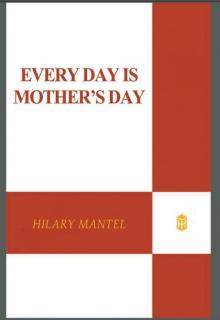 Every Day Is Mother's Day
Every Day Is Mother's Day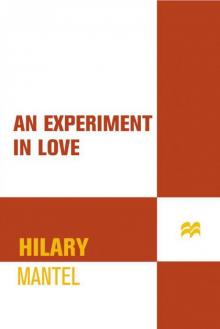 An Experiment in Love
An Experiment in Love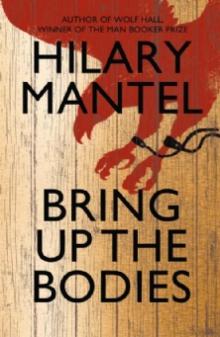 Wolf Hall
Wolf Hall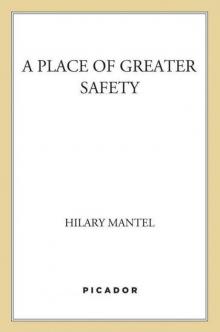 A Place of Greater Safety
A Place of Greater Safety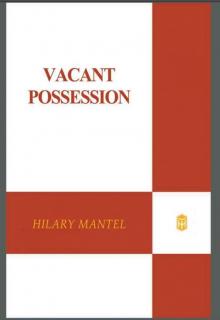 Vacant Possession
Vacant Possession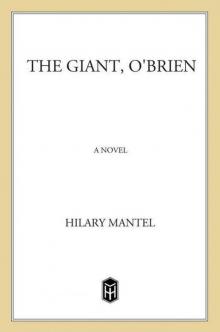 The Giant, O'Brien
The Giant, O'Brien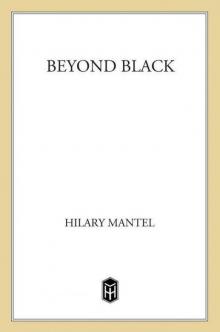 Beyond Black
Beyond Black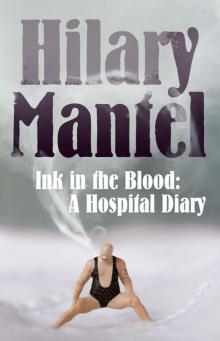 Ink in the Blood: A Hospital Diary
Ink in the Blood: A Hospital Diary The School of English
The School of English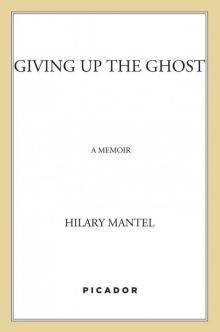 Giving Up the Ghost
Giving Up the Ghost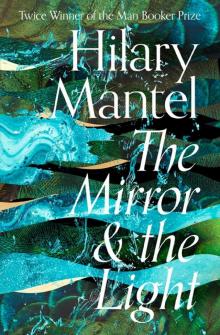 The Mirror and the Light: 2020’s highly anticipated conclusion to the best selling, award winning Wolf Hall series (The Wolf Hall Trilogy, Book 3)
The Mirror and the Light: 2020’s highly anticipated conclusion to the best selling, award winning Wolf Hall series (The Wolf Hall Trilogy, Book 3)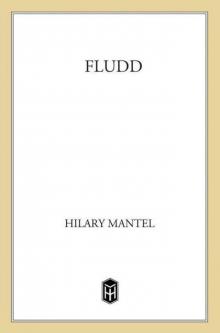 Fludd
Fludd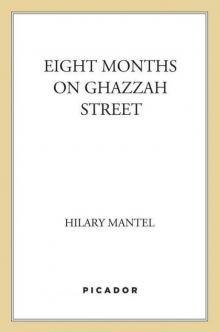 Eight Months on Ghazzah Street
Eight Months on Ghazzah Street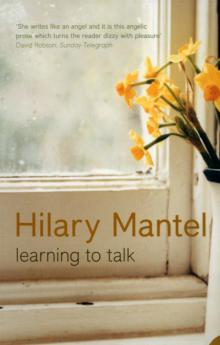 Learning to Talk
Learning to Talk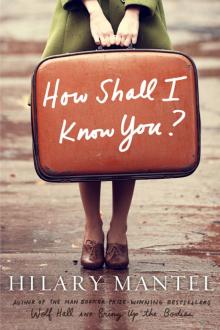 How Shall I Know You?: A Short Story
How Shall I Know You?: A Short Story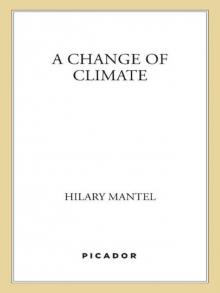 A Change of Climate
A Change of Climate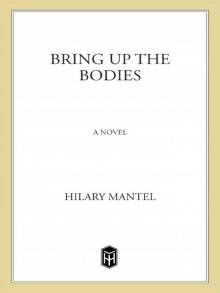 Bring Up the Bodies
Bring Up the Bodies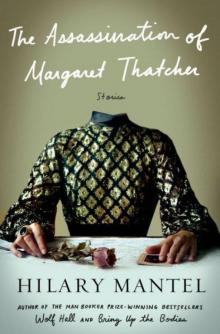 The Assassination of Margaret Thatcher: Stories
The Assassination of Margaret Thatcher: Stories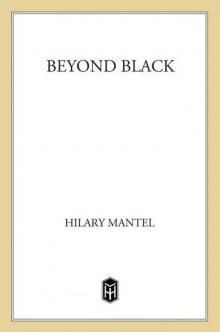 Beyond Black: A Novel
Beyond Black: A Novel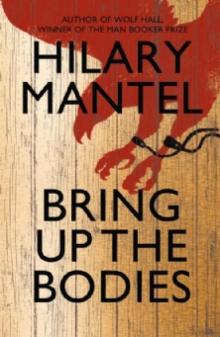 Wolf Hall: Bring Up the Bodies
Wolf Hall: Bring Up the Bodies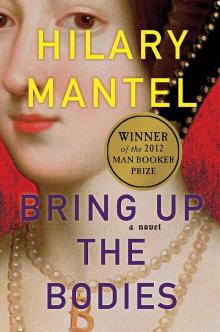 Bring Up the Bodies tct-2
Bring Up the Bodies tct-2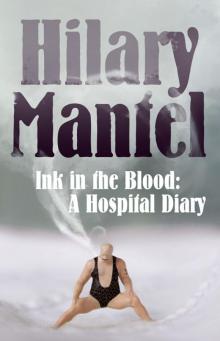 Ink in the Blood
Ink in the Blood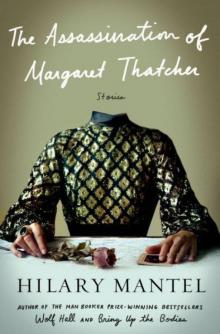 The Assassination of Margaret Thatcher
The Assassination of Margaret Thatcher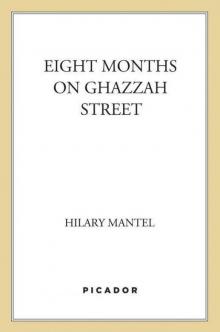 Eight Months on Ghazzah Street: A Novel
Eight Months on Ghazzah Street: A Novel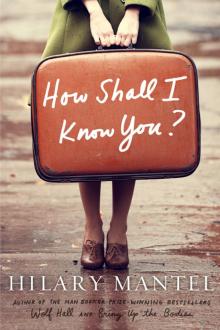 How Shall I Know You?
How Shall I Know You?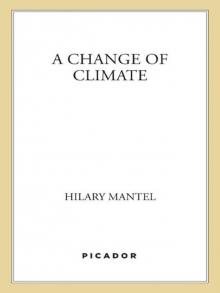 A Change of Climate: A Novel
A Change of Climate: A Novel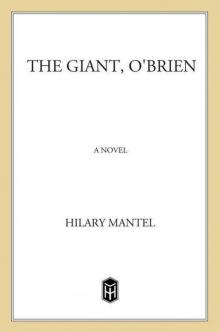 The Giant, O'Brien: A Novel
The Giant, O'Brien: A Novel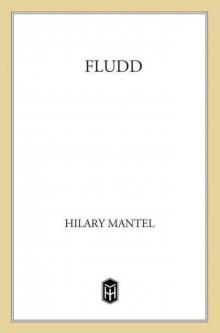 Fludd: A Novel
Fludd: A Novel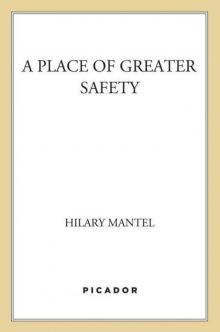 A Place of Greater Safety: A Novel
A Place of Greater Safety: A Novel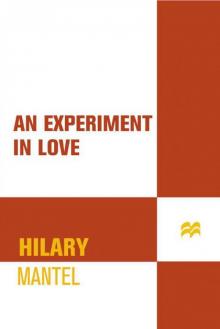 An Experiment in Love: A Novel
An Experiment in Love: A Novel